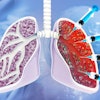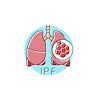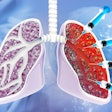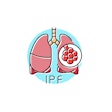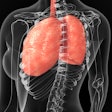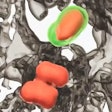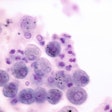
A new study published in eBioMedicine suggests using patient-derived stem cells to treat idiopathic pulmonary fibrosis (IPF). The promising results were detailed in “Epithelial Stem Cells From Human Small Bronchi Offer a Potential for Therapy of Idiopathic Pulmonary Fibrosis.”
It is widely believed that basal stem cells play a key role in repairing lung tissue. A group of researchers took samples from the upper respiratory tract of three IPF patients then grew the cells in the lab and transplanted them back into the respective patients’ lungs.
“Our clinical observations herein show that [basal cell] infusion is able to further prevent deterioration and reverse the declining trend of lung function parameters. This is a preliminary indication that airway epithelial stem cell-based therapy has a great potential to reverse impaired pulmonary function of IPF,” the researchers wrote.
The study stemmed from earlier analyses where Chinese researchers were examining cellular pulmonary activity of living IPF patients who had undergone lung transplantation. Looking at the removed lungs, scientists noted aging in some basal cells, particularly those in distal airways, which had made them essentially inactive. However, majority of basal cells in the upper area of the respiratory tract remained healthy.
The research team predicted it could remove healthy basal stem cells and relocate them to the deeper, smaller airways — where the bulk of damage existed — to promote healing and treat IPF. When tested on mouse models, the stem cell treatment yielded healthy lung tissue growth and reduced impairment. The treated mice also demonstrated improved overall lung function, lowered weight and longer survival time than untreated mice.
Investigators applied the proof of concept to a trial of three individuals with advanced IPF. In each case, the scientists collected, grew and infused proximal basal stem cells. Six months following treatment, all three patients experienced substantial improvements in lung function.
“Autologous [basal cell] transplantation in IPF patients showed a significant clinical efficacy, especially improvement in lung volume and small airway function,” the researchers wrote. “Collectively, our findings provided strong evidence that [basal cell] infusion played critical roles in modulating, and potentially reversing, the impaired function of small airways in IPF. This highlights their potential as a compelling therapeutic avenue for IPF management.”
Additional studies are required to evaluate long-term efficiency and safety on a bigger scale.
“It is our hope that this work will encourage further investigation and facilitate the recruitment of a larger eligible patient population in subsequent studies to validate and expand upon our results,” they said.



